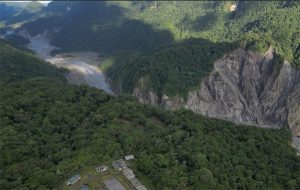
Peruvian President Pedro Castillo attempted to shut-down Congress yesterday, and was later impeached due to “moral incapacity” and arrested on charges of rebellion. Vice President Dina Boluarte was sworn-in yesterday afternoon, becoming Peru’s first female president.
Though yesterday’s events were particularly dramatic, Castillo has been embattled since the start of his mandate three years ago. The impeachment vote yesterday, which was scheduled before Castillo attempted to shut-down Peru’s Congress, was the third such attempt to oust him.
On Tuesday, Castillo said, in an unusual midnight address on state television, that a certain sector of Congress had it out for him and that he was paying for mistakes made due to inexperience.
He then announced, yesterday at noon, that he would close Congress and install a “government of exception,” a move IDL Reporteros compared to former dictator Alberto Fujimori’s 1992 self-coup.
Castillo’s move was widely rejected by Peruvian officials — cabinet ministers and government officials resigned en masse, while Boluarte said the move would only deepen the country’s political crisis. Peru’s top court declared the move unconstitutional. The armed forces and the police withdrew their support, saying, in a joint statement, that Castillo’s move was “contrary to the established constitutional order.”
Castillo was arrested and charged with allegedly “breaching constitutional order”, after being seen fleeing the presidential palace.
Castillo has been detained in the Barbarillo prison, where Fujimori is serving a sentence for human rights violations.
In her inaugural speech yesterday, Boluarte called for a political truce and the installation of a national unity government. “What I ask for is a space, a time to rescue the country,” she said.
Boluarte said her first order of business would be to address government corruption, ostensibly what led to Castillo’s downfall.
Most of the country remained calm yesterday, outside of a few protests in favor and against of Castillo’s ouster. Ultimately “it has been a great demonstration of institutional strength that the Armed Forces and the National Police, the Constitutional Court, the Judiciary, the National Prosecutor’s Office, all electoral bodies, the Comptroller’s Office, the Ombudsman’s Office, the media, among others came out without half measures to reject the coup attempt,” argues La República in an editorial.
Boluarte is Peru’s sixth president in as many years. Her tenure is due to last until 2026 but many Peruvians favor calling early elections. She follows a particularly tumultuous administration, even by Peruvian standards: Castillo went through more than 80 ministers in 17 months.
Nonetheless, Castillo’s passage through power shows a divided country: his approval rating slumped to 19 percent in Lima in the midst of corruption scandals this year, though in rural areas it remained at 45 percent, just four percentage points lower than a year ago.
Boluarte, a lawyer, was not well known in Peru before becoming Castillo’s running-mate. She was born in Apurímac, a mountainous region in the south, and is fluent in Spanish and Quechua. She distanced herself from Castillo in recent weeks, including refusing to serve as a minister in his cabinet.
(La República, La República, New York Times, Associated Press, Guardian, Reuters, Washington Post)

Colombia
- At least 199 social leaders and human rights defenders were killed this year in Colombia. It is the highest level recorded, and is due to attacks by illegal armed groups in areas tied to the drug trade, according to Colombia’s human rights ombudsman. (Reuters)
Brazil
- Brazilian Indigenous leaders expressed disappointment after president-elect Luiz Inácio Lula da Silva appeared to backtrack on a promise to create a ministry of Indigenous affairs, reports Reuters.
Amazonia
- A tiny Manaus bookstore, Banca do Largo, contains the world’s largest collection of Amazonian literature: a treasure chest of forgotten cultures and ignored histories, reports the Guardian. By promoting local literature, particularly works by Indigenous writers, owner Joaquim Melo hopes to protect rich social and environmental traditions.
Argentina
- Though Argentina legalized abortion two years ago, women who experience stillbirths, miscarriages and other complications are still being punished for alleged abortions, reports the Guardian.
Jordana Timerman / Latin America Daily Briefing
http://latinamericadailybriefing.blogspot












